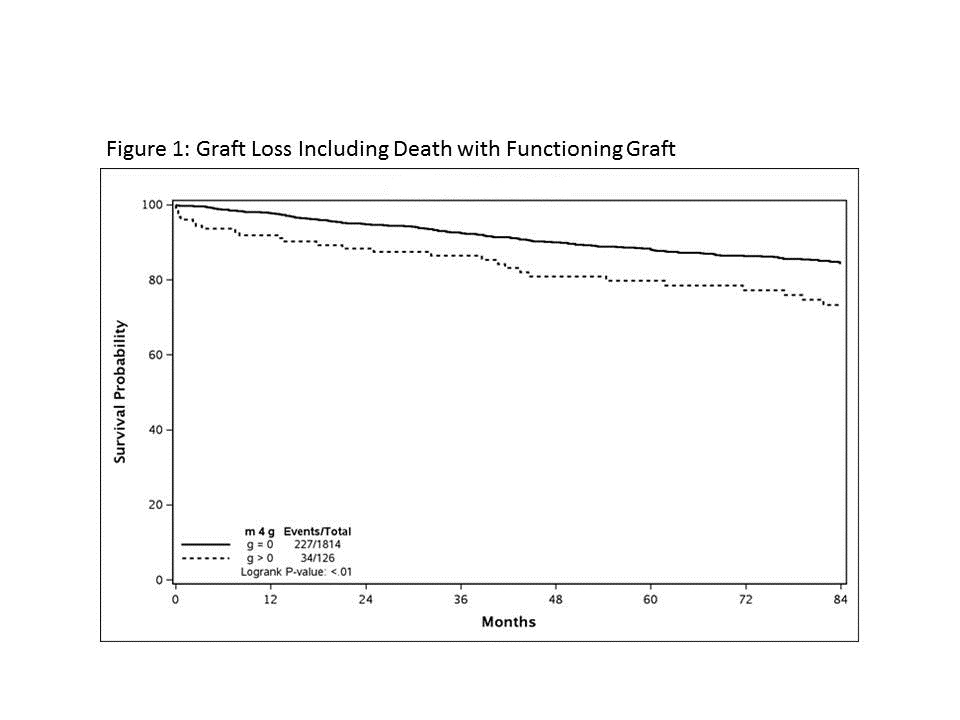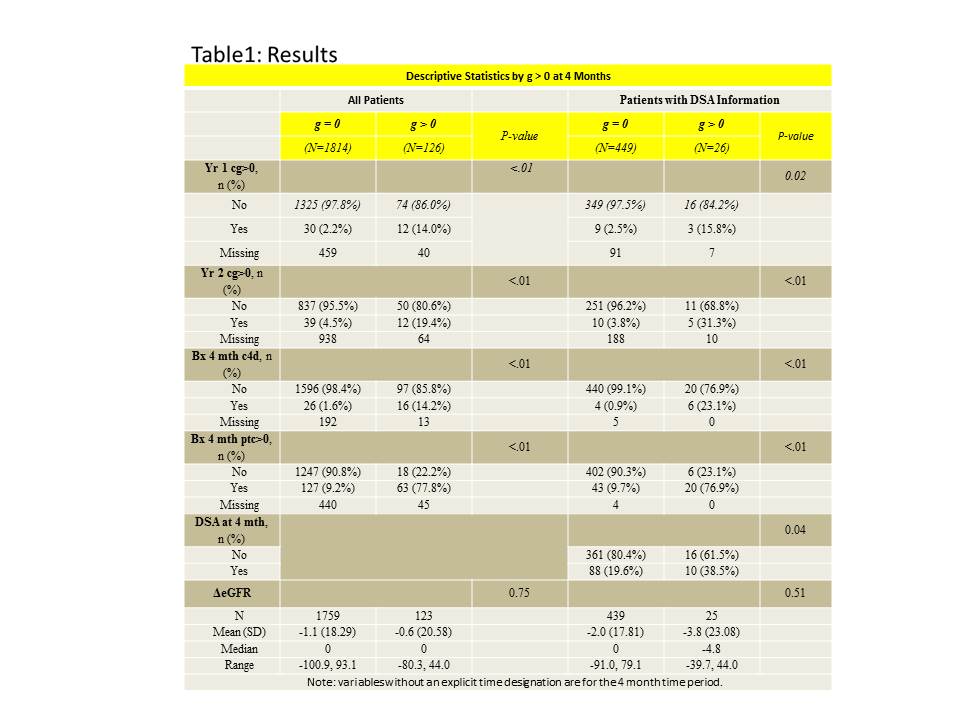Impact of Glomerulitis at 4-Month Biopsy on Long Term Kidney Allograft Outcomes
Mayo Clinic, Phoenix, AZ
Meeting: 2019 American Transplant Congress
Abstract number: 5
Keywords: Kidney transplantation, Prognosis
Session Information
Session Name: Concurrent Session: Kidney Complications: Late Graft Failure I
Session Type: Concurrent Session
Date: Sunday, June 2, 2019
Session Time: 2:30pm-4:00pm
 Presentation Time: 2:30pm-2:42pm
Presentation Time: 2:30pm-2:42pm
Location: Veterans Auditorium
*Purpose: Antibody mediated rejection (AMR) is diagnosed based on combination of elevated creatinine, histopathological findings defined as glomerulitis (g), and peritubular capillaritis (ptc), with or without c4d deposition, and presence of donor specific anti-HLA antibody (DSA). However, long term prognosis of glomerulitis defined as g > 0 and progression to chronic transplant glomerulopathy defined as cg > 0 remains unknown. The aims of this study are to determine:
Impact of g > 0 on graft failure including death
Progression of g > 0 to cg > 0
Impact of DSA between the two groups
*Methods: This is a retrospective study of patients who received a kidney transplant at our center between 7/2003-8/2018. Exclusion criteria: combined organ transplant, repeat transplant, recurrent or de novo glomerulonephritis. Based on 4 month protocol biopsy Banff scores, groups were divided into g = 0 and g > 0. DSA data was available from 10/2011. Subanalysis was performed to evaluate the impact of DSA using 1000 MFI as threshold for significance.
*Results: 1940 total biopsy samples were identified. 1814 biopsies showed g = 0 and 126 biopsies had g > 0. Kaplan Meier survival analysis shows the group with g > 0 at 4 month biopsy was at significantly increased risk for graft failure including death (Fig. 1) over median follow up of 54.8 months as compared to g = 0. Progression to cg > 0 at years 1 and 2 was significantly greater in patients with g > 0. Similarly, c4d and ptc correlated with g > 0 cohort (Table 1). Despite progression to cg, the overall eGFR remained the same between the 2 groups at the end follow up. Subanalysis of groups based on DSA data showed similar trends
*Conclusions: Early glomerulitis after kidney transplantation is associated with progression to glomerulopathy and inferior allograft survival. Further analysis of the relationship to the presence of DSA and other biopsy findings are needed.
To cite this abstract in AMA style:
Whigham M, Mour G, Buras M, Nair SSukumaran, Jaramillo A, Ramon D, Heilman R. Impact of Glomerulitis at 4-Month Biopsy on Long Term Kidney Allograft Outcomes [abstract]. Am J Transplant. 2019; 19 (suppl 3). https://atcmeetingabstracts.com/abstract/impact-of-glomerulitis-at-4-month-biopsy-on-long-term-kidney-allograft-outcomes/. Accessed March 3, 2026.« Back to 2019 American Transplant Congress


